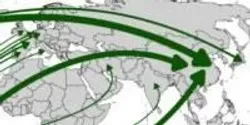Food Safety

The first nationwide vulnerability assessment for ocean acidification, published today in Nature Climate Change, shows that coastal communities in 15 states that depend on the nation’s approximately $1 billion shelled-mollusk (e.g., oysters and clams) industry are at long-term economic risk from ocean acidification.

As part of its ongoing commitment to offering solutions for pressing food fraud issues, the Institute of Food Technologists (IFT) Global Food Traceability Center (GFTC) submitted written comments on how to most effectively implement the recommendations from the Presidential Task Force on Combatting Illegal, Unreported and Unregulated (IUU) Fishing and Seafood Fraud.

Most food producers are subject to a broad range of regulations and standards, from industry-wide ones such as ISO 22000 (which sets out several communications and system management guidelines), the United States Food Safety Modernization Act (FSMA) of 2011 and the European Union Regulation (EC) No. 178/2002 to process-specific ones like the Egg Products Inspection Act (EPIA) or the Federal Meat Inspection Act (FMIA).

Ebola, as with many emerging infections, is likely to have arisen due to man’s interaction with wild animals – most likely the practice of hunting and eating wild meat known as ‘bushmeat’. A team of researchers led by the University of Cambridge and the Zoological Society of London (ZSL) has surveyed almost six hundred people across southern Ghana to find out what drives consumption of bat bushmeat – and how people perceive the risks associated with the practice.














